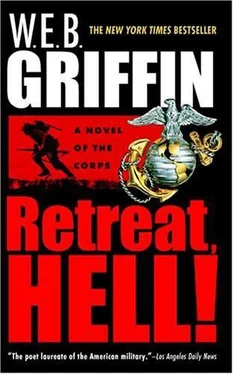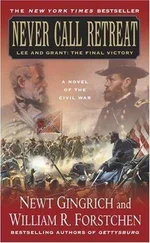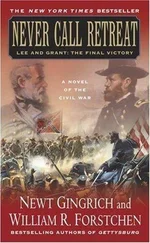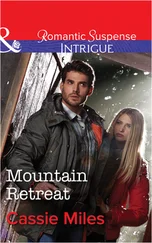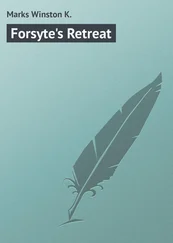"A dinner?" Raymond asked in disbelief.
"Roast beef, potatoes, rice, wine—lots of wine—and all served with as much class as we can muster."
Raymond had been eating his meals—prepared from Ten-In-One rations— off of a steel tray. There had been an infrequent beer, but it had been warm and in a can.
"Can I ask where you're getting all ... of this?" he asked.
McCoy looked at him thoughtfully for a moment, then smiled. He said: "Dunston's people managed to hide a lot of the crystal and silver and even some of the wine before the North Koreans took Seoul, and the day before yesterday Sergeants Jennings and Cole toured Inchon Harbor, swapping North Korean souvenirs—flags, weapons, et cetera—with the crews of the cargo ships. You'd be surprised what a good Marine noncom can get for a Sudarev PPS-43 submachine gun."
Raymond chuckled.
"Jennings and Cole," McCoy went on, "came back with a weapons carrier— and its trailer—full of frozen food and beer. The freezers and the reefers here still work, so we're in pretty good shape for a while."
"So the idea is, you're going to feed this NK colonel and try to get him drunk?"
"I don't think he'll let us get him drunk, but he might take a little more wine than he should,' McCoy said. "Enough to let something slip. Particularly if he thought he was impressing someone important. You're a distinguished-looking man, Colonel. Asiatics—who don't have much facial hair—are impressed with large mustaches. If we pin General Howe's stars on you, I think he'll buy you as a general officer."
"He speaks English?"
"I think he does, but won't admit it. Dunston, Zimmerman, and I speak Korean. I suppose it's too much to hope—"
"Nothing but German—I was there for four years—and not very good German."
In German, McCoy asked, "But if I said 'Look doubtful,' you'd understand?"
"Yes."
"And you could say, in German, 'What did he say?' when I give you the nod?"
"Yes, I guess I could."
"Colonel, I really hope you can stay for supper," McCoy said.
Why not? Raymond thought. As long as I get back to the CP by twenty-four hundred, so I can relieve the colonel. . . .
"If you think it would be useful, I will," Lieutenant Colonel Raymond said.
"You're really going into the general's luggage and borrow his insignia?" Dunston said.
"Unless you've got a better idea where we can get a set of general's stars," McCoy said.
Lieutenant Colonel Raymond decided that the lithe one, McCoy, wais the station chief. He was the one giving the orders.
[THREE]
Haneda Airfield
Tokyo, Japan
18O5 29 September 195O
Fleming Pickering glanced out the window as the Bataan taxied toward the hangar that served as the departure and arrival point for the Supreme Commander and his entourage.
He saw the line of staff cars lined up awaiting the Bataan’s passengers. MacArthur's black Cadillac limousine was first, and the cars of the other brass were behind it, strictly according to the rank of their intended passengers. Pickering saw his black Buick Roadmaster sitting alone in front of the hangar, facing in the opposite direction from the others.
Pickering knew this would annoy the Palace Guard, who would have greatly preferred to have his car with the others. His single star would have seen his car five or six cars behind MacArthur's limousine, reminding him that he was actually just a minor planet revolving around MacArthur.
MacArthur's staff—and, for that matter, El Supremo himself—really didn't like having anyone in their midst who did not have a precisely defined place in the hierarchy of the Supreme Commander, Allied Powers.
There were two such burrs under the saddles of the Supreme Commander and the Palace Guard, Major General Ralph Howe, NGUS, and Brigadier General Fleming Pickering, USMCR. Neither was subordinate to MacArthur, and both reported directly to the President of the United States.
Pickering had not been at all surprised when he came to Tokyo that the Palace Guard had immediately begun to attempt to get some degree of control over him—the more the better, obviously, from their point of view—and had been prepared to fight that battle, confident that he could win it again, as he had in the Second War.
The Buick—and his and George Hart's fur-collared Naval aviators' leather jackets—were more or less subtle statements that he was not subordinate to Supreme Headquarters, Allied Powers.
The Buick was his. He owned it.
When he had first come to Japan, he had been provided with an olive-drab Chevrolet staff car and a sergeant to drive it, and asked when it would be convenient for him to have the housing officer show him what government quarters were available for an officer of his rank, so that he could make a choice between them.
There was no question in Pickering's mind that the staff car drivers—three of them, on a rotating basis—were agents of the Counter-intelligence Corps, and thus reporting to Major General Charles A. Willoughby, MacArthur's chief intelligence officer.
He had politely thanked the Headquarters Commandant for the offer of government quarters, but said that would prefer to stay where he was, in a suite in the Imperial Hotel. And he had sent an urgent radio message to Colonel Ed Banning, who was at Camp Pendleton, ordering him to immediately buy a small Buick or Oldsmobile and have it placed aboard the very next P&FE freighter bound for Japan, even if he had to drive to San Francisco to get it on the next ship.
Colonel Banning had, with the word "immediately" in his mind, looked at the small Buicks and Oldsmobiles available in San Diego, decided "The General" would really not like any of them—he could not imagine "The General" riding around Tokyo in a bright yellow little Olds, or a two-tone, mostly lavender little Buick—and instead, eight hours after getting his orders, had stood on a wharf watching the black Buick Roadmaster being lifted aboard the Pacific Clipper, which he had been assured was among the fastest vessels in the P&FE fleet.
As soon as the car arrived, Pickering had told the Headquarters Commandant he would no longer need the staff car; he would drive his own car. The Headquarters Commandant told him he'd really be more comfortable if he continued to provide drivers, just in case Pickering might find them useful.
Pickering could not think of a reason to decline the "courteous, innocent" offer, so the "drivers" remained assigned to him. They usually spent their entire tour of duty reading newspapers and magazines while sitting on a couch in the corridor outside his suite. But sometimes he did use them. One of them had driven the Buick to Haneda in the morning, and had brought the car back to carry him to the hotel now.
That had solved the problem of the CIC agent drivers reporting his every move to Willoughby, and McCoy had solved what Pickering knew was a major problem—how to keep the messages he and Howe were sending to Truman really secret.
Despite the TOP SECRET EYES ONLY THE PRESIDENT classification, eyes other than Truman's would see the messages both in Tokyo, where they would be encrypted and transmitted, and at Camp Pendleton, California, where they would be decrypted, typed, and dispatched by Marine officer courier to the White House.
Pickering was confident that there would be no leaks at Pendleton, where a Marine cryptographer working only for Colonel Ed Banning would handle the decryption, and just about as sure their messages would be read in the Dai Ichi Building communications center by people other than the cryptographers. An army sergeant was unlikely to chase away a colonel with all the security clearances—or, for that matter, Major General Charles Willoughby himself— when he was reading over his shoulder.
Читать дальше
